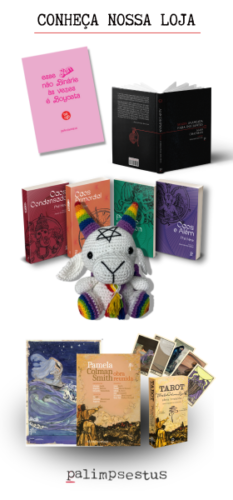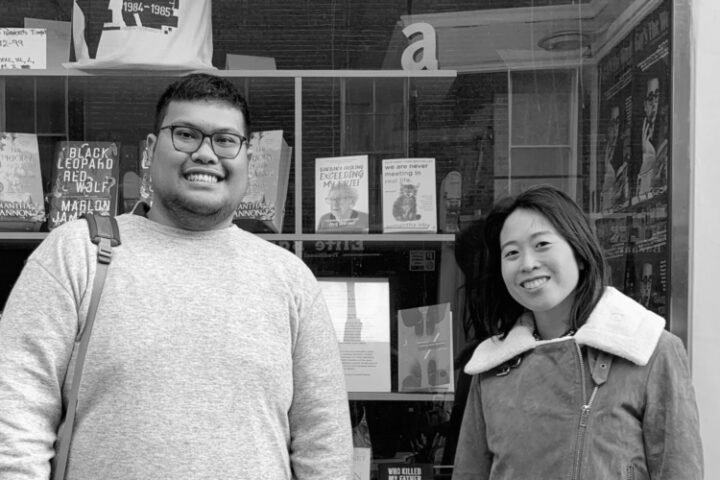Estudo do objeto
1
o mais belo é o objeto
que não existe
ele não serve para carregar água
nem para preservar as cinzas de um herói
não foi acalentado por Antígona
nem nele um rato se afogou
de orifício, nenhum resquício
pois é completamente aberto
visto
de todos os lados,
quase não é
antevisto
os feixes
de todas as suas linhas
confluem
num jato de luz
nem cegueira
nem
morte
podem roubar o objeto
que não existe
2
marque o lugar
onde ficava o objeto
que não existe
com um quadrado negro
ele será
um mero réquiem
pela bela ausência
vigoroso lamento
aprisionado
num quadrilátero
3
agora
todo o espaço
dilata-se como um oceano
um furacão fustiga
o veleiro negro
a asa de uma nevasca
circunda o quadrado negro
e a ilha submerge
sob a disseminação salina
4
o que se tem agora
é espaço vazio
mais belo que o objeto
mais belo que o lugar que ele deixa
é o antemundo
um paraíso branco
de possibilidades
lá você pode entrar
gritar
vertical-horizontal
relâmpagos perpendiculares
golpeiam o horizonte nu
podemos parar aqui
de todo modo você já criou o mundo
5
oriente-se
pelo olho interior
não se renda
a murmúrios sussurros estalidos
é o mundo não criado
impresso nos portões da paisagem
anjos ofertam
chumaços rosados das nuvens
por toda parte árvores implantam
filamentos verdes desalinhados
reis celebram a púrpura
e comandam trompetistas
auricolores
até a baleia pede um retrato
oriente-se pelo olho interior
nada aceite além
6
extraia
da sombra do objeto
que não existe
do espaço polar
das inflexíveis quimeras do olho interior
uma cadeira
bela e inútil
como uma catedral no deserto
ponha sobre a cadeira
uma toalha de mesa amarrotada
adicione à ideia de ordem
a ideia de aventura
que seja uma confissão de fé
diante do vertical em combate com o horizontal
que seja
mais silenciosa que anjos
mais orgulhosa que reis
mais verdadeira que uma baleia
que tenha a face das últimas coisas
pedimos que desvele, cadeira
as dimensões do olho interior
a íris da necessidade
a pupila da morte
Studium Przedmiotu
1
najpiękniejszy jest przedmiot
którego nie ma
nie służy do noszenia wody
ani do przechowywania prochów bohatera
nie tuliła go Antygona
nie utopił się w nim szczur
nie posiada otworu
całe jest otwarte
widziane
z wszystkich stron
to znaczy zaledwie
przeczute
włosy
wszystkich jego linii
łączą się
w jeden strumień światła
ani oślepienie
ani
śmierć
nie wydrze przedmiotu
którego nie ma
2
zaznacz miejsce
gdzie stał przedmiot
którego nie ma
czarnym kwadratem
będzie to
prosty tren
o pięknym nieobecnym
męski żal
zamknięty
w czworobok
3
teraz
cała przestrzeń
wzbiera jak ocean
huragan bije
w czarny żagiel
skrzydło zamieci krąży
nad czarnym kwadratem
i tonie wyspa
pod słonym przyborem
4
masz teraz
pustą przestrzeń
piękniejszą od przedmiotu
piękniejszą od miejsca po nim
jest to przedświat
biały raj
wszystkich możliwości
możesz tam wejść
krzyknąć
pion — poziom
uderzy w nagi horyzont
prostopadły piorun
możemy na tym poprzestać
i tak już stworzyłeś świat
5
słuchaj rad
wewnętrznego oka
nie ulegaj
szeptom pomrukom mlaskaniu
to niestworzony świat
tłoczy się przed bramami obrazu
aniołowie oferują
różową watę obłoków
drzewa wtykają wszędzie
niechlujne zielone włosy
królowie zachwalają purpurę
i każą trębaczom
wyzłacać
nawet wieloryb prosi o portret
słuchaj rad wewnętrznego oka
nie wpuszczaj nikogo
6
wyjmij
z cienia przedmiotu
którego nie ma
z polarnej przestrzeni
z surowych marzeń wewnętrznego oka
krzesło
piękne i bezużyteczne
jak katedra w puszczy
połóż na krześle
zmiętą serwetę
dodaj do idei porządku
ideę przygody
niech będzie wyznaniem wiary
w obliczu pionu zmagającego się z horyzontem
niech będzie
cichsze od aniołów
dumniejsze od królów
prawdziwsze niż wieloryb
niech ma oblicze rzeczy ostatecznych
prosimy wypowiedz o krzesło
dno wewnętrznego oka
tęczówkę konieczności
źrenicę śmierci
Study of the Object
1
The most beautiful is the object
which does not exist
it does not serve to carry water
or to preserve the ashes of a hero
it was not cradled by Antigone
nor was a rat drowned in it
it has no hole
and is entirely open
seen
from every side
which means
hardly anticipated
the hairs
of all its lines
join
in one stream of light
neither
blindness
nor
death
can take away the object
which does not exist
2
mark the place
where stood the object
which does not exist
with a black square
it will be
a simple dirge
for the beautiful absence
manly regret
imprisoned
in a quadrangle
3
now
all space
swells like an ocean
a hurricane beats
on the black sail
the wing of a blizzard circles
over the black square
and the island sinks
beneath the salty increase
4
now you have
empty space
more beautiful than the object
more beautiful than the place it leaves
it is the pre-world
a white paradise
of all possibilities
you may enter there
cry out
vertical-horizontal
perpendicular lightning
strikes the naked horizon
we can stop at that
anyway you have already created a world
5
obey the counsels
of the inner eye
do not yield
to murmurs mutterings smackings
it is the uncreated world
crowding before the gates of your canvas
angels are offering
the rosy wadding of clouds
trees are inserting everywhere
slovenly green hair
kings are praising purple
and commanding their trumpeters
to gild
even the whale asks for a portrait
obey the counsels of the inner eye
admit no one
6
extract
from the shadow of the object
which does not exist
from polar space
from the stern reveries of the inner eye
a chair
beautiful and useless
like a cathedral in the wilderness
place on the chair
a crumpled tablecloth
add to the idea of order
the idea of adventure
let it be a confession of faith
before the vertical struggling with the horizontal
let it be
quieter than angels
prouder than kings
more substantial than a whale
let it have the face of the last things
we ask reveal o chair
the depths of the inner eye
the iris of necessity
the pupil of death
From The Collected Poems, 1956-1998 (Ecco), translated by Alissa Valles.
O que se destaca em “Estudo do objeto” é o tratamento dado ao vazio e à suspensão do conhecimento das coisas e do mundo, deixando de lado a existência real do que se contempla para descrever a coisa quase esvaziada de significados. Tornou-se célebre a afirmação da artista Marina Abramovic sobre esse poema: “ele é capaz de me transportar para uma realidade paralela mais profunda que minha própria realidade”.
Minha tradução foi feita a partir de um cotejo cuidadoso do original em polonês com a tradução espanhola de Xavier Farr e inglesa de Alissa Valles, que pode ser lida na aba à direita.







